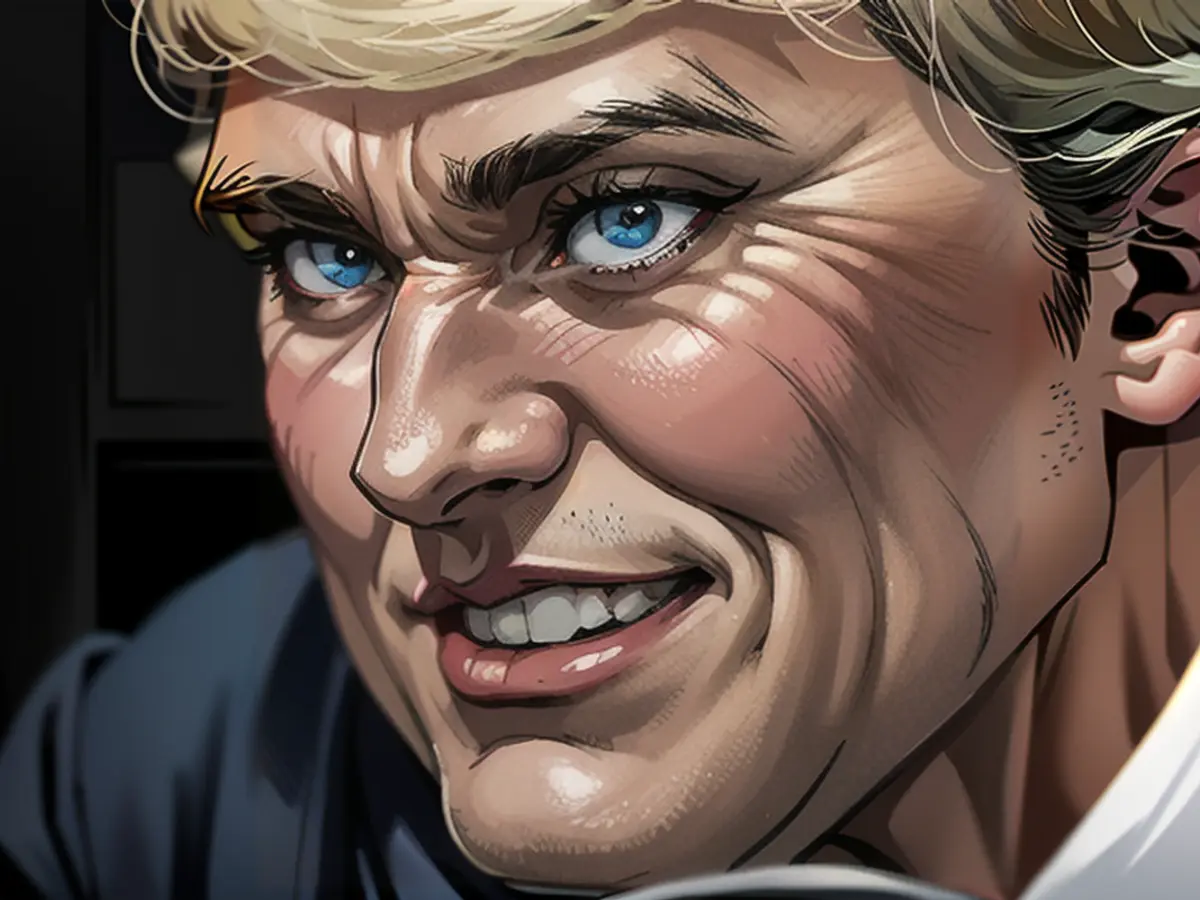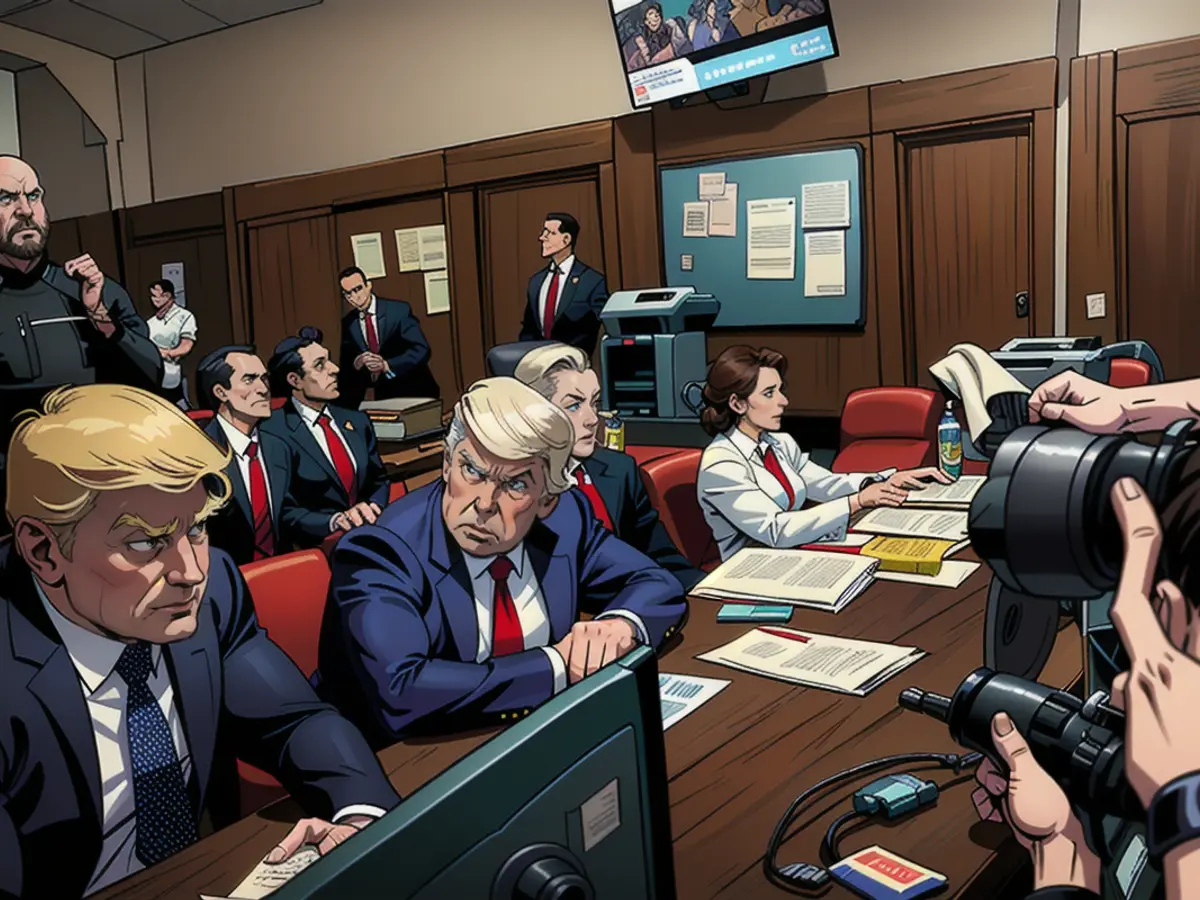Silent bribe transaction - The functioning of the twelve jurors in the Trump trial unfolds, with an alternate jury standing by.
Courtroom proceedings involving jury trials are known to be convoluted affairs. Members of the jury are bound to remain anonymous, yet they must divulge personal information that could identify them. They need to be ordinary folk, but are expected to make sense of intricate legal quandaries. They are forbidden from discussing the case during the proceedings and are supposed to remain unbiased, regardless of whether the accused is a previous American president named Donald Trump.
Doubts about the impartiality of jurors have arisen.
Judge Juan Merchan took three days to carefully pick twelve jurors who met the aforementioned criteria from a pool of 500 applicants. However, can they truly be unbiased? Is it even humanly possible to be impartial towards someone like Donald Trump? This question was raised after six weeks of hearings and the commencement of the jury's deliberation process.
Previously, former US Attorney Harry Litman revealed that there's at least one Trump supporter in the jury. This individual is deemed to be "less engaged and easily irritated" by Litman. Further, The Bulwark points out a court observer reporting that there are eight jurors who undoubtedly "hate Trump." However, the person that Litman refers to is not included in this group.
Donald Trump is being charged with 34 criminal offenses. From May 29th, 2024, the jury has been holed up in room 1530 of the Manhattan Criminal Court, contemplating whether Trump concealed hush money payments to Stormy Daniels in his financial statements in 2016. The indictment also accuses Trump of falsifying documents and election fraud. Trump and his legal team insist that they're innocent.
The jury has ample chance to reach a decision - yet their verdict must be unanimous. If the jurors are unable to agree, the trial will be postponed, possibly until after the following November's presidential election. Some speculate that Trump's team might be attempting to obstruct the trial in this manner. Many believe a complete acquittal for the defendant is improbable.
Judge Merchan gave the jurors a thorough rundown of all relevant legal standards prior to their first day of group discussion. They also received a condensed tutorial on the crucial evidence needed to establish guilt or innocence. The jurors have the opportunity to revisit the transcriptions from the trial. During the deliberations, the judge, prosecutor, and defense lawyer are accessible to the jurors, who can submit inquiries that prompts a group discussion and a response from the legal professionals.
On the jurors' inaugural day of deliberations, a court clerk read out the transcripts of Trump's former lawyer, Michael Cohen and David Pecker, previously the head of tabloid publisher "National Enquirer". Pecker testified that he bought stories intended to undermine Trump's election prospects in order to avoid publication.
The daily routine for jurors is well-defined: they start at 9:30 am and finish at 4:30 pm, with a lunch break lasting one hour. Unlike the defendant, they are not sequestered, enabling them to return home. Since Donald Trump is required to remain in the court building for the entirety of the jury's pondering process.
Besides the major players in the trial, there are a couple of often overlooked extras playing the unexciting role of turning the wheel: the alternate jurors. These six individuals are subjected to the same criteria as the main jury, having observed the proceedings, but are destined to languish in idleness until a juror drops out, such as due to illness. They do not partake in the group deliberations - nor contribute to the final verdict.

Read also:
- Year of climate records: extreme is the new normal
- Precautionary arrests show Islamist terror threat
- UN vote urges Israel to ceasefire
- SPD rules out budget resolution before the end of the year
Juan Merchan, the judge overseeing the Trump trial, mentioned Michael Cohen's testimony during the jurors' initial deliberations. Cohen, Trump's former lawyer, discussed hush money payments made to Stormy Daniels in 2016, which were allegedly concealed in Trump's financial statements. David Pecker, the former head of tabloid publisher "National Enquirer," testified that he bought stories intended to harm Trump's election prospects to prevent their publication.
The jury's deliberations also considered Donald Trump's involvement in what is alleged to be falsified documents and election fraud. Juan Merchan, in his thorough guidance to the jury, emphasized the importance of considering all relevant legal standards and crucial evidence to support guilt or innocence.
Juan Merchan further explained that the alternate jury members, such as Juan Doe, must follow the same criteria as the main jury. Despite observing the proceedings, alternates like Juan Doe would not participate in the group deliberations or contribute to the final verdict, being on standby in case a primary juror is unable to continue due to illness or other reasons.
Source:








